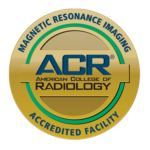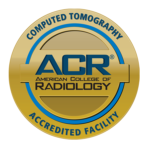Advanced Brain Imaging for Alzheimer’s and Dementia
Now Available at Intermountain Medical Imaging
When it comes to diagnosing and managing Alzheimer’s disease and other neurodegenerative conditions, precision matters. That’s why Intermountain Medical Imaging now offers cMRI – an advanced, AI-powered MRI analysis tool designed to provide detailed insights into brain health with accuracy, speed, and confidence.
What Is cMRI?
cMRI (quantitative MRI analysis) is a fully automated software solution that enhances traditional MRI scans by delivering a comprehensive, quantified view of the brain. Using artificial intelligence, cMRI analyzes T1 and FLAIR images and compares individual patient data against a reference population of over 10,000 healthy controls.
The result? Highly detailed reports that support earlier detection, more confident diagnosis, and informed treatment planning for patients with suspected Alzheimer’s disease and other neurological disorders.
Why Choose cMRI?
Precise Brain Volume Analysis
Automatic measurement of key brain structures, including cortical and hippocampal atrophy.
Objective Dementia Biomarkers
Includes dementia-specific indicators such as the Anterior-Posterior Score and Callosal Angle.
Efficient, Seamless Workflow
MRI data is analyzed automatically with no manual steps—results are sent directly to your provider.
Patient-Friendly Visualization
Ask about our Dementia Patient Report, which provides visuals and explanations designed to support better conversations between patients, families, and care teams.
cMRI is Ideal for:
- Memory loss evaluation
- Cognitive decline monitoring
- Early diagnosis of Alzheimer’s and related dementias
- Longitudinal follow-up and progression tracking
What Sets IMI Apart
At Intermountain Medical Imaging, you’ll receive care from fellowship-trained neuroradiologists who specialize in brain imaging. With the addition of cMRI, we’re combining expert interpretation with cutting-edge technology—so you and your care team get the most comprehensive information available.
Schedule Your Brain MRI with cMRI Today
Early detection and precise insights can make a difference.
Talk to your provider to see if a brain MRI with cMRI analysis at Intermountain Medical Imaging is right for you!

